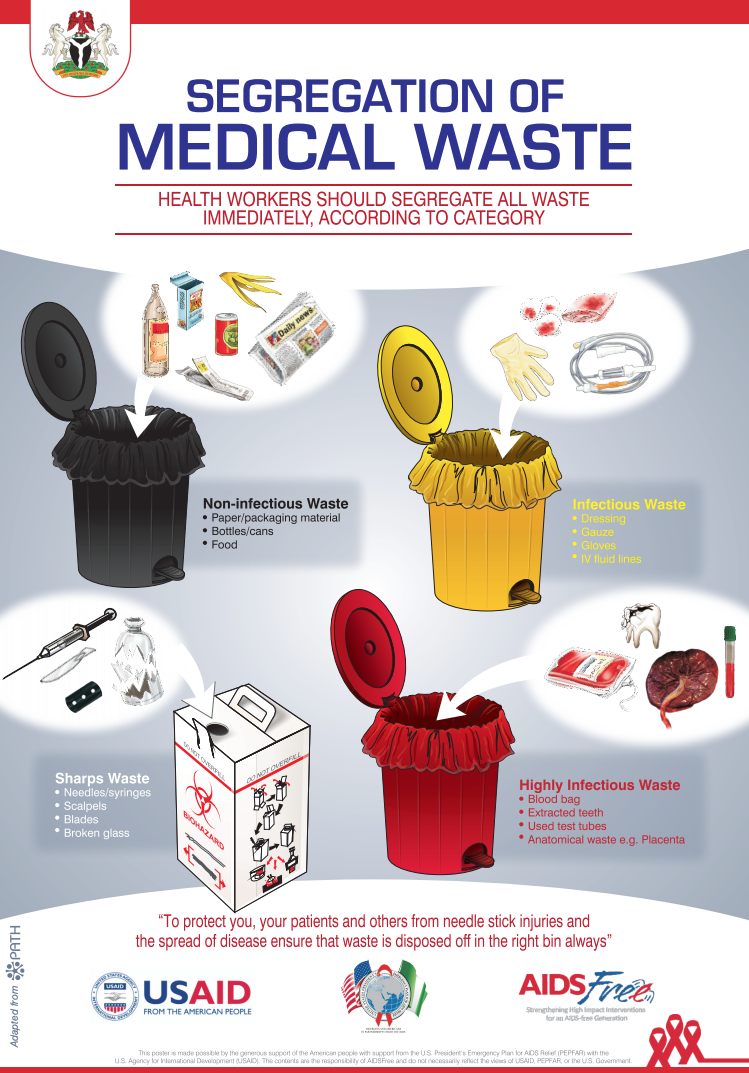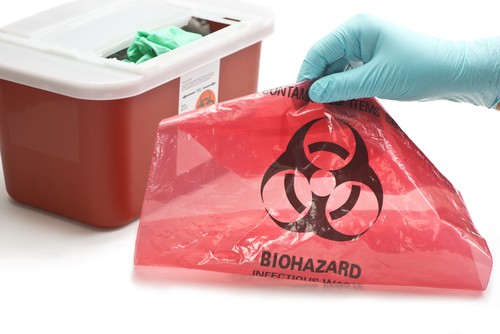Eco-Friendly Solutions for Medical Waste Removal: Prioritizing Security and Compliance
Making Sure Safe Handling and Disposal of Medical Waste
Guaranteeing secure handling and disposal of clinical waste is of vital relevance in healthcare settings. Improper monitoring of clinical waste can position substantial threats to the setting, public health, and health care employees. This necessitates adherence to stringent guidelines and procedures for its risk-free handling and disposal. In this intro, we will certainly discover the relevance of correct medical waste management, the risks linked with improper handling and disposal, in addition to the guidelines and strategies that can be executed to ensure its risk-free disposal. Furthermore, we will certainly go over the value of training and education for healthcare specialists in order to keep a tidy and safe healthcare environment. By complying with these methods, we can efficiently mitigate the possible dangers connected with clinical waste.
Significance of Proper Clinical Waste Administration
Proper clinical waste management is of utmost relevance in making sure the safety and well-being of medical care specialists, clients, and the public. Clinical waste describes any type of waste produced by health care facilities during the medical diagnosis, therapy, or booster shot of humans or pets. This waste can position significant health and wellness dangers otherwise managed and disposed of effectively.
One of the primary reasons correct medical waste administration is critical is to stop the spread of infectious diseases. Clinical waste, such as made use of needles, infected dressings, and organic materials, can bring harmful microorganisms. Otherwise handled and thrown away appropriately, these pathogens can be transmitted to medical care workers, clients, waste trainers, and also the basic public, causing the potential break out of conditions.
In addition, correct medical waste administration assists secure the setting - medical waste removal. Medical waste consists of unsafe products, consisting of chemicals, drugs, and contaminated materials. When not taken care of properly, these materials can contaminate soil, water bodies, and the air, positioning a considerable danger to ecological communities and public health and wellness
Additionally, efficient medical waste management guarantees conformity with neighborhood guidelines and worldwide requirements. Governments and regulatory bodies have actually developed standards and methods to ensure the safe handling, storage, transport, and disposal of medical waste. Abiding by these regulations is crucial to stay clear of lawful repercussions and maintain the online reputation and reliability of health care facilities.
Threats of Improper Handling and Disposal

If clinical waste is not effectively disposed of,Patients can also be exposed to these contagious illness. If infected needles or various other sharps are not disposed of in assigned puncture-proof containers, they may inadvertently puncture individuals, leading to prospective infections. Moreover, if medical waste is not segregated correctly, there is a risk of cross-contamination between different sorts of waste, more boosting the chances of disease transmission.
Incorrect disposal of medical waste can also have destructive results on the atmosphere and the public. If medical waste is not dealt with and taken care of properly, it can contaminate water resources, dirt, and air, resulting in the spread of pollutants and conditions. This can have long-lasting consequences on ecosystems and public wellness.
Guidelines for Safe Handling of Medical Waste
Applying efficient protocols for the secure handling of medical waste is essential in making sure the protection of medical care experts, people, and the public. These standards are vital in reducing the threats related to the handling and disposal of clinical waste, such as infections, injuries, and environmental air pollution.
Most importantly, medical care facilities have to establish a thorough waste management strategy that adheres to regional, nationwide, and worldwide regulations. This plan ought to include clear instructions on waste partition, packaging, transport, storage, and labeling. It is vital to divide various sorts of waste, such as sharps, infectious products, drugs, and non-hazardous waste, to avoid cross-contamination and promote risk-free disposal.
In addition, medical care personnel should get thorough training on appropriate waste handling methods. They need to be enlightened on the potential hazards of medical waste, the proper usage of individual safety equipment (PPE), and the correct procedures for managing, moving, and getting rid of various kinds of waste.
In addition, medical care centers need to routinely keep track of and investigate their waste administration practices to guarantee compliance with guidelines. This includes conducting normal inspections, reviewing waste handling treatments, and giving responses and training to team participants.
Efficient Techniques for Waste Disposal
To ensure the safe handling and disposal of clinical waste, it is crucial to use reliable approaches for garbage disposal. Medical waste can position considerable risks to public health and the setting if not managed and gotten rid of effectively. As a result, medical care facilities and waste management companies should execute suitable methods to mitigate these dangers.
It includes dividing various types of clinical waste based on their characteristics. Health care centers ought to supply clear standards and training to staff participants on just how to segregate waste properly.

Additionally, medical care centers should work together with accredited waste monitoring firms to make certain proper disposal of medical waste. These companies have the know-how and tools called for to securely take care of and get rid of of clinical waste in conformity with regulations and ideal techniques.
Training and Education And Learning for Medical Care Professionals
Medical care experts play an essential duty in ensuring the secure handling and disposal of clinical waste with detailed training and education. It is vital for doctor to have a deep understanding of the prospective dangers connected with clinical waste and the correct procedures for its administration. By receiving correct training, health care experts can reduce the potential transmission of transmittable illness, avoid environmental contamination, and shield both themselves and the public.

Additionally, training programs need to stress making use of personal protective equipment (PPE) and appropriate hand health practices when managing medical waste. medical waste removal. Health care specialists should know exactly how to appropriately use and dispose of PPE to shield themselves from potential exposure to dangerous products. They need to additionally be educated on the significance of routine handwashing and the proper use hand sanitizers to lessen the spread of transmittable conditions
Proceeding education and learning and regular updates on medical waste administration techniques are essential for health care specialists. As policies and standards evolve, it is vital to maintain you can try these out healthcare suppliers informed about any type of adjustments in methods and ideal practices. This will guarantee that they remain current and maintain a high requirement of security in getting rid of and handling of medical waste.
Final Thought
In final thought, proper handling and disposal of clinical waste is critical to make certain the safety and security of health care professionals, people, and the atmosphere. By adhering to these techniques, we can alleviate the potential threats connected with medical waste.
Clinical waste refers to any waste created by health care facilities throughout the diagnosis, therapy, or immunization of human beings or animals. If medical waste is not set apart correctly, there is a threat of cross-contamination between various types of waste, more enhancing the opportunities of illness transmission.
It is vital to separate various types of waste, such as sharps, transmittable materials, drugs, and non-hazardous waste, to prevent cross-contamination and advertise safe disposal. WasteX Medical Waste Disposal.
To make certain the risk-free handling and disposal of clinical waste, it is necessary to employ efficient strategies for waste disposal. Furthermore, medical care facilities ought to develop a normal waste collection and transportation schedule to stop waste buildup and reduce the risk of mishaps or contamination.